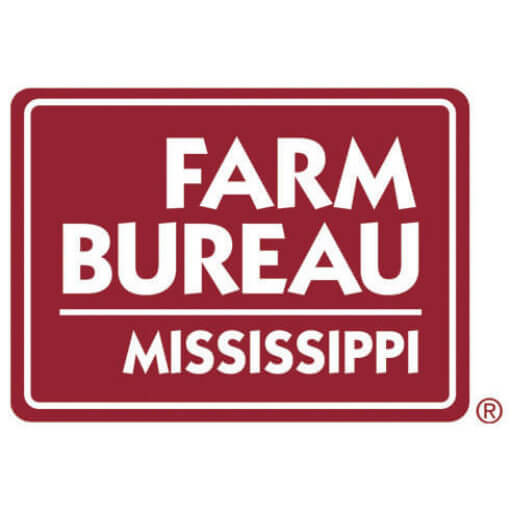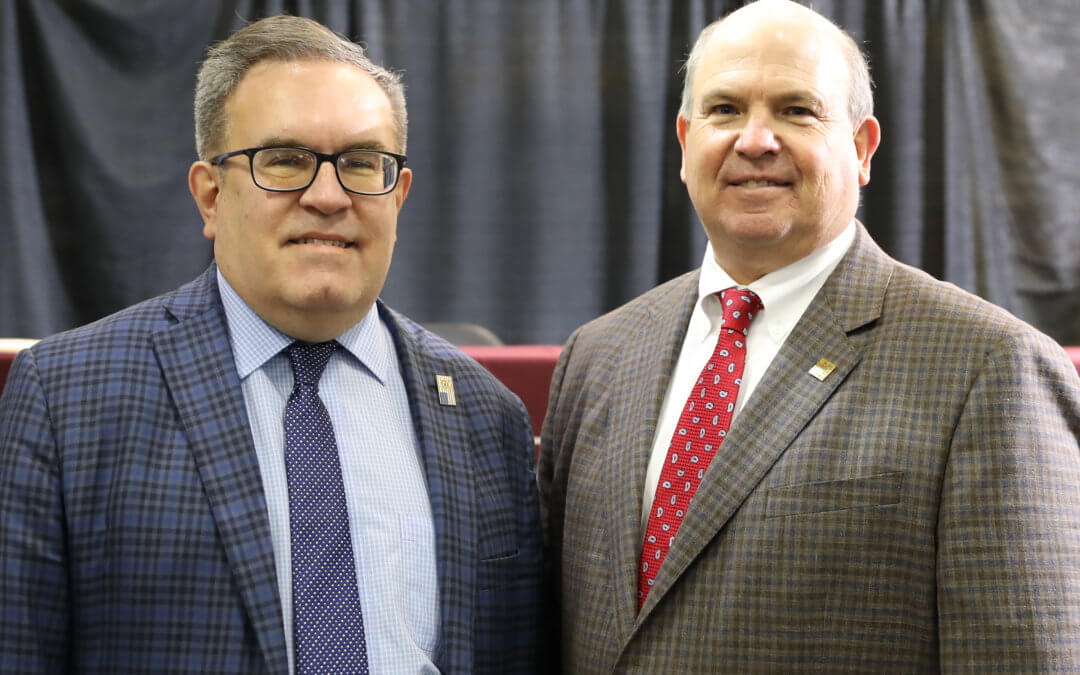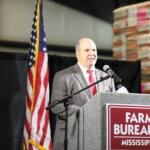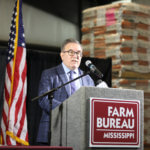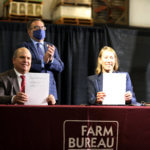United States Environmental Protection Agency Administrator Andrew Wheeler announced a $2 million dollar initiative that encourages smart, sensible and sustainable pest control in agriculture at an event hosted with the Mississippi Farm Bureau Federation today.
MFBF President Mike McCormick and Wheeler were joined by U.S. Senator Cindy Hyde-Smith, Mississippi Department of Environmental Quality Director Chris Wells, Mississippi Department of Agriculture and Commerce Commissioner Andy Gipson, Mississippi State Senator Charles Younger, EPA Regional Administrator Mary Walker and EPA Chief of Staff Mandy Gunasekara for the announcement.
The initiative, which is an extension of EPA’s Pesticide Environmental Stewardship Program (PESP), expects to award grantees up to $200,000 to implement sustainable pest management practices that align with the agency’s goal of providing a healthier environment for all Americans.
“With the extension of this multi-million-dollar initiative, the Trump Administration is providing growers with the additional resources they need to cut down on the environmental risks of both pests and pesticides,” Wheeler said. “Together, EPA and the agricultural community are building on our already strong foundation of sustainable pest management practices.”
This fiscal year, EPA expects to award approximately $2 million total for agricultural projects that explore innovative practices, technologies, education, and non-regulatory solutions that promote the adoption of integrated pest management (IPM) strategies. Traditional pest control involves the routine application of pesticides. IPM, in contrast, combines biological, cultural, physical and chemical tools in a way that minimizes economic, health and environmental risks.
EPA expects to issue a Request for Applications in January 2021 and applicants will have 45 days to submit their applications. Funding will be available to:
- States or state agencies, territories, city or township governments, and federally recognized tribes
- Public and private universities and colleges
- Other public or private nonprofit institutions and 501(c)(3) organizations (PESP membership is not an eligibility requirement to receive funding)
“We are pleased to be a part of this important announcement today with EPA. We look forward to working with EPA to further this important program here in Mississippi,” McCormick said.
EPA’s PESP is guided by the principle that partnership programs complement the standards and decisions established by regulatory and registration actions. This partnership program has previously invested nearly $4 million annually to support more than 100 successful grants, awards, and collaborative efforts. These efforts have promoted IPM in agriculture, schools, integrated vegetation management on utility rights-of-ways, and shared information on tick management strategies and EPA region-specific projects on sustainable pest management practices.
Today, EPA partners with over 400 organizations through PESP and welcomes more organizations to share the commitment to environmental stewardship where we live, work, play, and farm.
In addition to Wheeler’s announcement, McCormick and Walker signed a Memorandum of Understanding to formalize and enhance collaboration between the EPA and MFBF. Together the EPA and MFBF intend to enhance their communication and coordination efforts, as well as promote education and outreach.
“MFBF is looking forward to continuing to strength its relationship with the EPA through this MOU in order to help Mississippi’s farmers and ranchers continue putting food on our tables in the most sustainable ways possible,” McCormick said.
For more information about PESP, visit: www.epa.gov/pesp
For more information about PESP grants, visit: https://www.epa.gov/pesp/pesticide-environmental-stewardship-program-grants
To learn more about IPM, visit: www.epa.gov/ipm.
